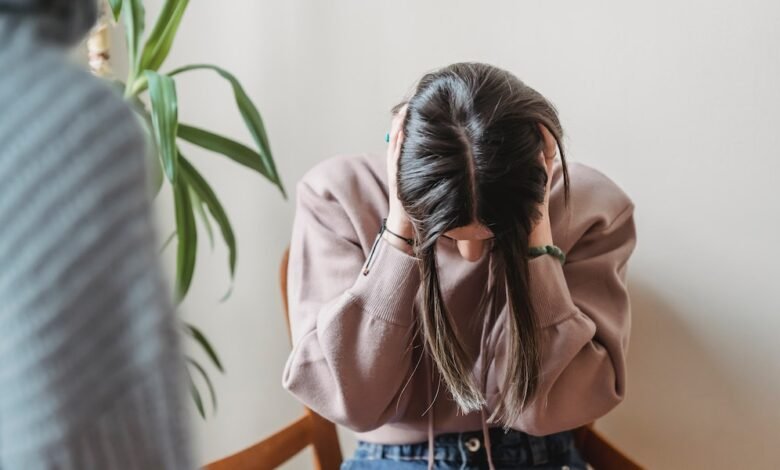WHO IS TO BLAME FOR MASS SHOOTINGS?

Mass shootings have become an unfortunate reality in today’s society, leaving us grappling with questions of blame and responsibility. Identifying a single cause or entity to hold accountable for these tragic events is a complex task. The issue of mass shootings encompasses a multitude of societal, cultural, and psychological factors that interplay in intricate ways. In this article, we will explore various perspectives and shed light on the different factors that contribute to mass shootings.
Mass shootings are incidents characterized by the indiscriminate targeting of multiple individuals in public spaces, resulting in a significant loss of life and widespread fear. The frequency of these incidents has raised concerns and sparked debates about who should be held responsible for their occurrence.
Read More: SUNSCREEN TOXINS LINKED TO HARMFUL CHEMICALS: 5 BEST PREVENTION
Understanding the Complexity of Mass Shootings
Mass shootings cannot be attributed to a single cause. They are the product of a complex web of factors that intertwine, creating an environment conducive to such acts of violence. It is essential to delve into these factors to gain a comprehensive understanding of the issue.

Societal Factors and Their Influence
Media Influence
The media plays a crucial role in shaping public perceptions and can inadvertently contribute to the problem of mass shootings. Sensationalized coverage and the glorification of perpetrators may inadvertently inspire others to commit similar acts. Responsible journalism and a focus on the victims can help mitigate this influence.
Accessibility to Firearms
Easy access to firearms has been a contentious issue in the context. The availability of powerful weapons can amplify the devastation caused by such incidents. Stricter gun control measures and comprehensive background checks can help reduce the likelihood of firearms falling into the wrong hands.
Mental Health and Social Isolation
Mental health issues and social isolation are often underlying factors. Addressing the stigma surrounding mental health, expanding access to treatment, and fostering supportive communities can help identify and support individuals at risk of engaging in such acts of violence.
Role of Government and Legislation
Governmental policies and legislation play a vital role in curbing. Stricter gun control measures, improved background checks, and increased funding for mental health initiatives are essential steps toward preventing these tragedies. Collaborative efforts between lawmakers, law enforcement agencies, and mental health professionals are crucial for effective implementation.
Influence of Violent Video Games and Entertainment
The influence of violent video games and other forms of entertainment has been a subject of debate concerning mass shootings. While research has not established a direct causal link, it is important to recognize the potential impact of prolonged exposure to violent content on impressionable individuals. Promoting media literacy and responsible consumption can help mitigate any negative effects.
Root Causes vs. Individual Responsibility
Examining the root causes necessary to develop effective preventive strategies. However, it is equally important to recognize that the ultimate responsibility lies with the individuals who commit these acts. Blaming external factors alone can oversimplify the issue and hinder efforts to address the problem effectively.
Addressing Mental Health Care and Stigma
Improving mental health care and reducing the associated stigma are vital components of preventing. Adequate funding, accessible treatment options, and increased awareness campaigns can encourage individuals to seek help and address underlying mental health issues before they escalate into violence.
Preventive Measures and Gun Control
Implementing preventive measures and enacting comprehensive gun control legislation is crucial for reducing the likelihood of mass shootings. Stricter background checks, closing loopholes in existing laws, and limiting access to high-capacity firearms can act as deterrents and prevent potential perpetrators from carrying out their plans.
The Importance of Comprehensive Background Checks
Comprehensive background checks are essential for regulating the purchase and ownership of firearms. By thoroughly examining an individual’s history, including criminal records and mental health evaluations, potential risks can be identified, and the likelihood of firearms falling into the wrong hands can be minimized.
Social Responsibility and Education
Promoting social responsibility and education is instrumental in preventing mass shootings. Teaching empathy, conflict resolution, and emotional intelligence can help individuals develop healthier coping mechanisms and contribute positively to their communities. Education initiatives should focus on early intervention and fostering a sense of belonging among individuals.
Engaging Communities and Building Support Networks
Creating strong support networks within communities is critical for identifying individuals at risk of perpetrating. Encouraging open communication, providing mental health resources, and establishing community-based intervention programs can ensure that individuals receive the necessary support before resorting to violence.

MASS SHOOTINGS, Conclusion
In conclusion, mass shootings are complex issues with no simple answers. Blaming a single entity or factor is inadequate in addressing the problem comprehensively. It requires a multifaceted approach that involves media responsibility, gun control measures, mental health care, social responsibility, education, and community engagement. By working together, society can strive to prevent future tragedies and create a safer environment for all.
Read More: Supply Chain Volatility Pricing Schemes
FAQs (Frequently Asked Questions):
- Are mass shootings solely the result of mental health issues?
While mental health plays a role in some cases, mass shootings cannot be solely attributed to this factor. They involve a complex interplay of various societal, cultural, and psychological factors.
- Does stricter gun control reduce the occurrence of mass shootings?
Stricter gun control measures, including comprehensive background checks and limiting access to high-capacity firearms, can act as deterrents and reduce the likelihood of mass shootings.
- Do violent video games contribute to mass shootings?
The impact of violent video games on mass shootings is a subject of debate. While research has not established a direct causal link, it is important to promote responsible consumption of media and educate individuals on distinguishing fiction from reality.
- Can community engagement help prevent mass shootings?
Engaging communities and building support networks can play a significant role in preventing mass shootings. By fostering a sense of belonging, individuals at risk can receive the necessary support and intervention before resorting to violence.
- What can individuals do to contribute to the prevention of mass shootings?
Individuals can contribute to the prevention of mass shootings by promoting social responsibility, educating themselves and others, advocating for sensible gun control measures, and supporting mental health initiatives in their communities.










